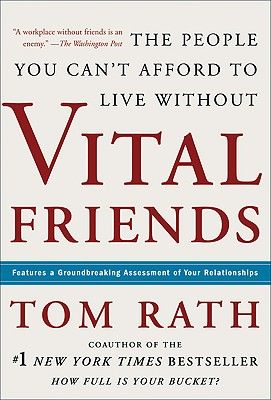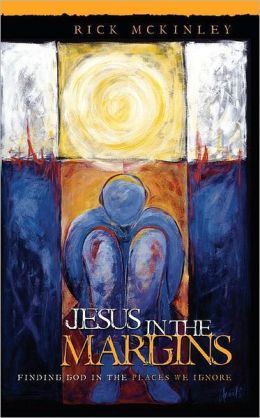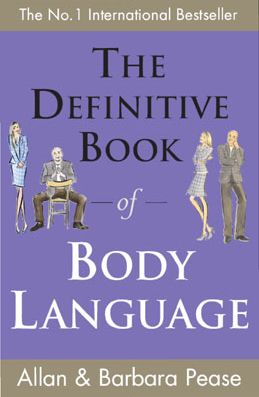Sunday, May 16, 2004
Such a nice big horsie! Wheeeee!!!
I've always been a big fan of myths and legends particularly that of the Greeks, and subsequently I'm very familiar with almost all the stories they have come up with. Except for the Trojan War which I thought was too long to sustain my interest (the story's contained in Homer's Iliad). Of course when I did open the book to read the second half of The Iliad I already had quite an idea what it was all about having seen different artworks and watched a couple of movies depicting Odysseus' long journey back home. Long after that did I finally read the first half. I wasn't really expecting anything from the movie Troy which helped a lot. I first heard about it when the people behind the production hired a leg double during the shoot for Brad Pitt, who's notorious for having scrawny "chicken legs". I was half expecting the movie to be more faithful to the myth than to history. I was expecting to see Paris awarding the golden apple of contention to Aphrodite and in turn rewarding him with the most beautiful woman on the face of the Earth and I was expecting to see the Greek gods of Olympus taking sides on the war. But I guess that would be cheesy.
The movie started not with the purported kidnapping of Helen of Greece but with a brief introduction to the Greeks' invasion of Troy and a very short duel between their best warriors, "Goliath" for the Trojans and Achilles (Brad Pitt) for the Greeks. He and King Agamemnon (Brian Cox), who personally led the army, don't see each other eye-to-eye and this would be the 'cause of some problems in their later siege of the city. King Menelaus (Brendan Gleeson) of Sparta held a banquet to celebrate their victory during which his wife Helen (Diane Kruger) met Prince Paris (Orlando Bloom) of Troy. They have been holding their secret trysts during the duration of the Trojan Princes' stay and on that final night Paris endeavored his beloved to come away with him on their return home. There was hell to pay when this treachery was discovered. Menelaus went to his older brother Agamemnon and pleaded with him to go after the traitors to bring his wife back, while on the side of the Trojans Hector (Eric Bana), Paris' older brother, was furious that his brother could abuse the hospitality shown to them by their neighbors. Although he was against his brother's impulsive and immature decision, he thought against going back to return Helen thinking it was already too late for apologies and would best be prepared for war. Back to the Greeks' side, they couldn't go against the Trojans knowing they have two things going for them: large impenetrable walls and Prince Hector. The latter is reputed to be one of the best fighters around and while they worry about breaching the walls they would need someone to match him sword for sword.
Agamemnon thought long and hard about all this, he wasn't satisfied with the lack of bloodshed that happened during their first invasion of Troy, and the only way they could successfully do this is for Achilles to lead their army. But given their current situation he would be hard put to try and convince his prize swordsman to fight for him. So they sent Achilles' best friend, Odysseus (Sean Bean) to reason with him. This he was able to do by appealing to his pride. He told him that the only way he could achieve glory and immortality is by going down in flames with them against the kingdom of Troy. Achilles' mother also told the same. He did so reluctantly, joining a fleet of thousands that set sail for battle. Back in Troy, King Priam (Peter O'Toole) welcomed the Trojan delegation to Greece led by his sons. He too welcomed their defector, Helen of Sparta. Hector and Paris' cousin, Briseis (Rose Byrne), also met them with good news since she was recently inducted as one of the priestesses in the temple of their patron god, Apollo. The Trojans, as was shown later, relied too much on the protection of their god. They were also a superstitious lot making crucial decisions based on omens interpreted by their High Priests, this proved to be their undoing later on.
Nearing their destination, Achilles and his band of men didn't wait for orders and immediately attacked the first line of defense set up by the Trojans on the shores of their land. Achilles also led the attack in the Temple of Apollo taking all its treasures and killing all the priests. Hector saw the invading ships in the distance and rallied his army against the Greeks before they could reach the walls of their city. There was a brief encounter between the two expert swordsmen but Achilles let him go thinking it was too early in the day for them to fight one to one. After the skirmish he was presented with a gift, a captured priestess from the temple. Achilles rightly deduced that she was royalty although he was unsure who she was. A short time later she was later used as a pawn during a disagreement between King Agamemnon and him, widening further the rift between the two. In protest, Achilles withdrew himself from the first battle where King Menelaus was killed by Hector who was defending his wounded brother from a failed duel with the king. The scattered attack of the Greeks proved to be ineffective and they were run back to their camps by the victorious Trojans. Emboldened by this initial result, King Priam was egged on by his priests to launch a surprise attack at daybreak against the better judgment of his son, Hector, who is a more experienced warrior. Tragedy resulted from that attack. The night before that Achilles thought it more prudent to leave the war with his men and take their former captive priestess now beloved mistress, Briseis, with them. But before they could do so, Achilles' cousin was accidentally killed in that battle. He thought against their leaving without him spilling Trojan blood so he put on his older cousin's armor and sword and fought against Hector. The grieved Hector ordered a reprieve to the battle and retreated back home. Sensing his doom he gave explicit instructions to his wife Andromache (Saffron Burrows) to go down a secret tunnel and take their son and as many of their countrymen as she could saying he doesn’t know how long the city would stand long after his death. The following morning, Achilles comes along and orders a challenge (sponsored by Altoids: The Curiously Strong Mint). The swordfight between the two men lasted for a few minutes before Achilles dealt Hector a serious wound and running him with his sword. To add salt to injury, Achilles dragged the dead body back to their camp in full view of Hector's family and royal subjects. Later that night in what appeared to be one of the most tender moments in modern cinema, King Priam snucked into the Greek camp and pleaded for the body of his murdered son. Achilles, being an honorable person himself, gave in and surrendered the body and freed Briseis to her uncle. Furthermore, he entered into a pact that there would be twelve days of peace while the Trojans grieved over the loss of their beloved prince. The Greeks took that time to build a "peace offering" to the sea god Neptune: a huge wooden horse. It was the brainchild of Odysseus who saw an opportunity to finally defeat the deeply religious and superstitious Trojans. After their grieving period they finally received word that the Greeks had sailed away after a plague had wiped out most of them. In one brilliant moment, Paris had the idea that they reject the wooden horse and burn it to the ground. His father and their priests were aghast, why would they burn down a gift to the gods? In doing so they would have called down a curse upon themselves. They brought it inside their city and held a victory celebration that lasted the whole day. Nightfall came and while the pooped Trojans slept in their beds, some Greeks who holed inside the horse came out, killed the sleeping guards and opened the gates allowing their comrades to run inside and burn the whole thing to the ground. While his countrymen were running amuck pillaging the houses and temples and killing everyone who gets in their way, Achilles run around looking for his beloved Briseis. Before they met again, she whacked King Agamemnon off and before his men could finish her off, Achilles arrived in the nick of time and killed the others. But Briseis' reluctance to follow her lover's entreaty cost Achilles' life. Paris saw the opportunity to make up for years of utter wimpiness and first shot the invincible Achilles through his heel. And despite his cousin's pleadings to stop, Paris followed it up with four more shots through his kidney. After a final kiss between the two lovers Paris speeds her off to safety before the Greeks could find out who finished off their hero. The movie ends with Achilles' funeral pyre lit by Odysseus.
Like I said before it's good that I learned not to expect anything from this movie al though I do like it. It lacks the seriousness and epic quality of that other sword-and-sandal movie, Gladiator. The script and the shots could've been tightened a bit more, and I was more focused on the actors were instead of their acting (prolly stemming from the need for getting more into the characters' flesh instead or merely acting them out). Also, what's the deal with the names of the gods? Historically speaking, we know that the Greeks came before the Romans so it should follow that they should refer to their gods correspondingly. Although they did get the name Zeus correct, they should have referred to Apollo as Helios and Neptune as Poseidon. Another deal is the date, while it was shown that the alleged war happened around 3,200 BC doing some research in the internet would show that the war happened two centuries later. So who's the truth? But although Troy's existence has been and still is relegated to legend, the earlier date of 3,200 BC justifies a great deal on the influences of Egyptian art on their statues. These are minor nitpickings and it doesn't add or subtract much from the story. I'd also like to echo a comment that the people behind the production managed to squeeze a ten-year long war into 2.50 hours leaving out many, many details out of the original story that made The Iliad such an engaging read. Maybe they should have included the involvement of the gods into their story. Even a minor one. A smidgen background even. They don't need to speak, they can be special effects added every now. But that's just me. Hmmm… now, should we expect a sequel showing the travails of Sean Bean's character and crew's return back to Greece?
* Check out also the review in Hollywood Jesus for more insightful reactions to this great movie.

 @ 11:45 PM --->
@ 11:45 PM ---> 














